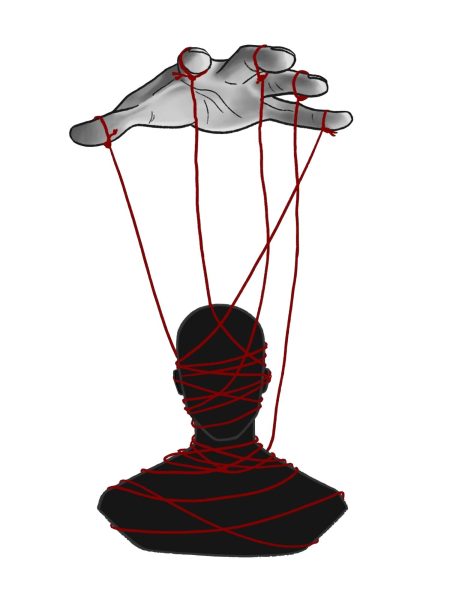Summer Camps everlasting Im-Packs
October 2, 2022
Cries of laughter, patting feet running down the swim dock, splashes in the lake, late night campfires and songs are the all-too-familiar sounds of summer camp. Each year, families plan for what their two-month break will look like, considering various factors. Out of trips, work and internships, summer camp attracts the most families. With about 20 million children attending summer camp every year in the U.S., it’s an influential part of many kids’ summers.

The various attributes of summer camp make it appealing to families and kids. For instance, spending time away from home and learning the value of independence are some main factors that grab families’ attention. Camp allows kids to try new things and enjoy the freedom of not having parents around while also gaining maturity by living away from home. Furthermore, kids can explore a new place and exit the bubble they grew up in. While there are downsides to summer camp, such as expenses and the fact that it means leaving home, this simple
lifestyle change can create an unforgettable impact on kids.
But is camp something every child should experience, and is summer camp worth it? The harsh transition of kids growing up can be softened by going to summer camp every summer. The different lifestyle can become a safe space for kids where they feel like it is somewhat of a second home, where they learn about their identity and create valuable memories.
Nestled between the mountains of San Bernardino in Southern California is Lake Arrowhead. Every summer for the past seven years, junior Maddie Eaton has traveled to the University of California Los Angeles (UCLA) Bruins Woods Camp, located on the banks of Lake Arrowhead. Both Eaton’s parents graduated from UCLA, allowing her to participate in a camp open to children of alumni. The camp includes many activities, such as water sports, ceramics and yoga. The camp counselors are all current students at UCLA.
“[Since camp is] a week-long, it makes [the time] special because it feels long at first and then [goes by in the blink of an eye] … I’ve made my best friends there,” Eaton said.
For Eaton, the difference between camp friends and hometown friends is a clearly defined line. Eaton believes the bond with her camp friends is stronger because she can be emotionally vulnerable. The special relationships she has formed came from the ability only to see her friends annually. In addition, Eaton has gone to this camp throughout her childhood and has grown relationships with counselors. As a result, she felt she was able to confide in them while she faced challenges.

“It’s more comforting [going to the counselors] rather than your parents because it’s someone who wants to hear you out. You can be real with [the counselor],” Eaton said.
Bruin Woods has inspired Eaton to want to be the same role model for younger kids at camp that her counselors were for her. Having a counselor, she felt connected to and could turn to in times of need was extremely important to her growing up.
“My counselor this year was the epitome of the cool older sister. She gave me advice…[and because] I’m the oldest in my family, it was nice to have that experience,” Eaton said.
The main theme camp embedded into Eaton’s life is a feeling of independence and self-reliance, which has taught her to feel confident in decision-making and not rely on others. For Eaton, the camp has proved to be a truly special and defining experience.
“[Bruin Woods] is my second home and I love it. Without that happy place, I wouldn’t have gotten through hard times the way I did. I think summer camp is a crucial experience [for kids],” Eaton said.
Similar to Eaton, junior Theo Fortescue has traveled to Washington state and attended Camp Nor’wester in the Samal Islands. The camp, located on a remote island that can only be traveled to by boat, has been Fortescue’s home for four weeks for the past seven summers. One of the main aspects of the camp that differs from others is that electronics are forbidden, which Fortescue enjoys, feeling that it gives him a better connection to those around him.
“I liked [not using electronics]. It was nice not having a distraction in my life, [and] I got to know people a lot better,” Fortescue said.
The entire camp eats meals together and sings memorable camp songs from a songbook. From crafts to climbing to archery, the camp includes an activity for everyone. Fortescue feels that the camp’s community and people are why he returns each summer.
“The people I saw at camp I would only see once every year for four weeks, and every year those people would change. Camp helped me expect change and accept it,” Fortescue said.
Growing up at camp, Fortescue noticed the changes in his roles as he aged.
“Every year you come back, you gain more responsibility [to become] good role models [for] the younger [kids] …I would have to teach them how to resolve fights and use words instead of violence,” Fortescue said.
This new mentor-like role introduced Fortescue to some of his valuable life lessons. He also found that testing the boundaries in a comfortable environment was worthwhile and taught him more about himself.
“This past year [at camp] I summitted Mt. Baker, which is the second highest mountain in Washington state. There were parts of it that were scary, but looking back on it, it was awesome,” Fortescue said.
The oldest campers get to partake in the climbing of Mt. Baker, which is the central tradition of camp. Climbing this mountain had not been done in five years, so this experience of arriving at the summit was extremely influential for Fortescue.
For many, the transition from camper to counselor is a defining experience as campers grow up at a summer camp and then get to become mentors to the campers. Lainey Wank, a senior at Redwood high school, was a Counselor in Training (CIT) at Camp Tawonga, located in Groveland just outside of Yosemite Valley. The sleepaway camp is known as a Jewish camp, but Wank doesn’t describe the camp as only conforming to that one aspect, and participating in Judaism is not required to attend the camp.
“Probably a third of the camp isn’t Jewish. [Tawonga has] more of a nature focus and nature preservation through a Jewish lens. A lot of emphasis is on community and positivity,” Wank said.
Becoming a CIT was a milestone for Wank. As she transitioned from camper to counselor, her responsibilities grew, and so did her mindset.
“It was cool seeing the switch [from camper to CIT]. You kind of felt the magic as a camper, and then you’re providing the magic [as a counselor],” Wank said.
Wank spent most of her time between lunch and dinner with her cabin of eight-year-old girls. Toward the beginning of each day, the CITs would train for other activities.
Growing up going to camp since she was nine years old, like Eaton’s sentiments, Wank feels more comfortable around her camp friends and thinks that camp each summer is a refresh for her. One of the main traditions at Tawonga is a backpacking trip, which gets longer as the campers get older. The most extended trip was three nights backpacking in the valley of Yosemite. In addition, Tawonga has helped Wank find her passion for environmental studies, specifically agricultural departments. Wank felt that she holds her camp experience as a valuable part of her life growing up and one that she feels everyone should experience.

“I think [camp] is something you should try when you’re young, and if it’s not for you, don’t go. It’s only as special as you make it,” Wank said.
Eaton, Wank and Fortesque all gained independence and life lessons, creating everlasting bonds that impacted their lives. The transition of growing up and leaving one’s childhood behind can be difficult. Still, an experience like summer camp continues to be one of the most influential things that can keep the spirit of childhood alive and be a constant while kids grow up. Whether it’s pitching a tent in the woods, heading to a classic cabin-style camp, or just being in a different place for a few days, however that may be, camp creates the opportunity to explore one’s passions, skills and identity in a safe environment.






















